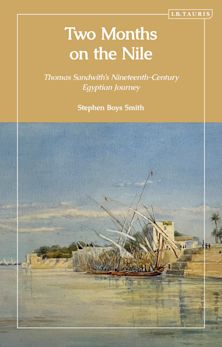- Home
- ACADEMIC
- Middle East
- North African Studies
- The Berbers of Morocco
You must sign in to add this item to your wishlist. Please sign in or create an account
Description
From the Rif War to the rebellion of 1958, the Berbers (Imazighen) have played a central role in the history of Moroccan resistance to colonialism in the twentieth century. This book provides an in-depth overview of Berber resistance to the French campaigns of 'Pacification', and the subsequent struggle over Berber identity in the independence era. Deeply steeped in Berber history and culture, the author traces the major and minor engagements between French forces and the Berbers in revealing detail, using previously unavailable sources. Relying on a wealth of oral sources and extensive field work, it provides the most complete history to date of one of the most important Berber communities in North Africa.
Table of Contents
Introduction
Chapter 1: Berber origins
Chapter 2: From Carthage to Islam
Chapter 3: Dynasts versus heretics
Chapter 4: Triumph of the Atlas
Chapter 5: Makers of mayhem: Beni Hilal and Ma'qil.
Chapter 6: Atlas saints and mountain monarchs.
Chapter 7: Senhaja revival
Chapter 8: Scourge of the Berbers
Chapter 9: Transition and recovery
Chapter 10: The Berber backlash
Chapter 11: Dawn of the great qayd era.
Chapter 12: The foreign threat
Chapter 13: Start of Morocco's thirty years war
Chapter 14: Defence of central Middle Atlas
Chapter 15: Stemming the tide in SE
Chapter 16: Great qayd against marabout
Chapter 17: Between Oum Rbia' and Moulouya: failure of the marabouts
Chapter 18: Boisterous battles round Jbel Tichoukt
Chapter 19: Phoney war on the Atlas front (1926-1929)
Chapter 20: Reckless raiders rule the roost (1927-1934)
Chapter 21: Opening rounds of Atlas endgame: Ayt Ya'qoub and Tazizaout (1929-1932)
Chapter 22: Heroic defence of Tazizaout
Chapter 23: Atlas endgame: closing stages (1933-1934)
Chapter 24: Pacification aftermath
Chapter 25: Transition to modernity: protectorate and independence
Chapter 26: Amazigh culture fights to assert itself in Moroco (2007-2018)
Conclusion
Product details
| Published | 29 Oct 2020 |
|---|---|
| Format | Ebook (PDF) |
| Edition | 1st |
| Extent | 352 |
| ISBN | 9781838603731 |
| Imprint | I.B. Tauris |
| Illustrations | 51 bw illus |
| Publisher | Bloomsbury Publishing |
About the contributors
Reviews
-
Michael Peyron has written a groundbreaking study on the history of the Berbers of Morocco. He devoted all of his scholarly life to the study of their history, in particular their history in the 20th century. As a fluent speaker of Middle Atlas Berber he was able to collect Berber language materials (poetry, accounts of historical events) by which his book has acquired a definitely Berber perspective. Michael Peyron is the best scholar to guide the reader through the various stages of the Moroccan Berbers' complex history.
Harry Stroomer, Professor Emeritus of Berber and South Semitic languages, Leiden University, The Netherlands
-
There can be few outsiders more familiar with the history, language and culture of the Berbers of the Moroccan Atlas mountains than Michael Peyron. Distilling over half a century's experience of exploring and living in the Atlas, The Berbers of Morocco paints a rich and colourful history stretching back to the classical era. Peyron's fluency in the Tamazight language allows him to draw on a wealth of local oral history and traditional poetry collected over the years to enrich the historical narrative and give valuable voice to the memories and perspectives of the people of the region.
Michael Willis, HM King Mohammed VI Fellow in Moroccan and Mediterranean Studies, Oxford University, UK
-
A rollicking examination of Amazigh military resistance, and a paean to cultural resilience. Written with clarity, verve, and precision, this book draws from a lifetime of passionate research.
David Crawford, Professor of Sociology and Anthropology, Fairfield University, USA

ONLINE RESOURCES
Bloomsbury Collections
This book is available on Bloomsbury Collections where your library has access.



































